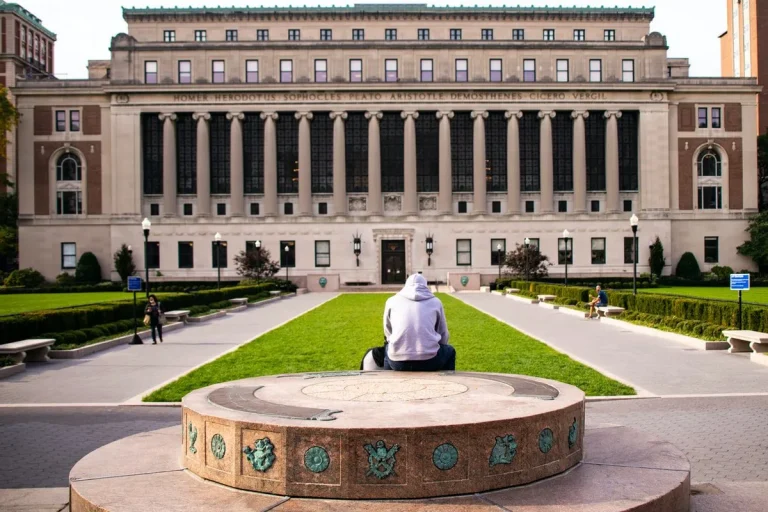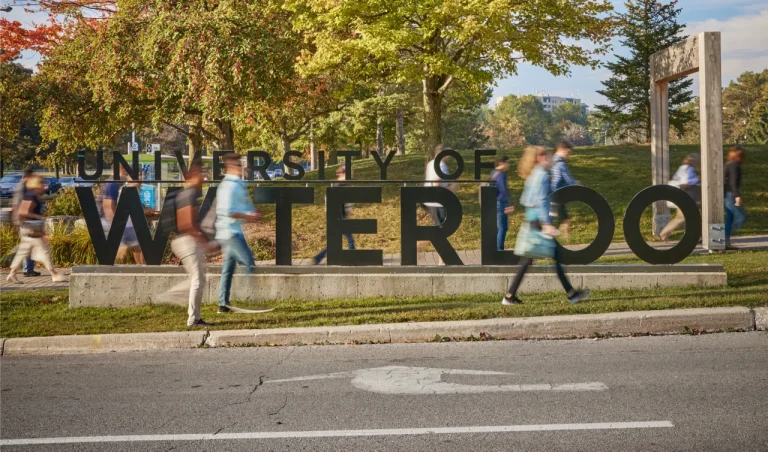Is Political Science A Liberal Arts Major? Examining Its Curriculum And Goals
The liberal arts encourage broad intellectual study rather than professional or technical skills. Given political science examines governments, systems, and political behavior, does it qualify as a liberal arts major?
Let’s explore the curriculum, learning objectives, and historical roots of the discipline.
If you’re short on time, here’s a quick answer: Yes, political science is generally categorized as a social science within the liberal arts. It aims to cultivate analytical skills and political knowledge, rather than narrow professional training.
Defining the Liberal Arts and Political Science
Before delving into the curriculum and goals of political science as a liberal arts major, it is important to understand the concept of the liberal arts itself. The liberal arts are a broad range of subjects that aim to provide students with a well-rounded education and develop their critical thinking, communication, and problem-solving skills.
This interdisciplinary approach allows students to explore various fields of study, including humanities, social sciences, natural sciences, and more.
Overview of the liberal arts
The liberal arts curriculum typically includes courses in subjects such as literature, history, philosophy, mathematics, natural sciences, and social sciences. This diverse range of subjects helps students develop a broad understanding of the world and enhances their ability to think critically and analytically.
By studying different disciplines, students can make connections between seemingly unrelated topics and gain a more holistic view of the world.
Goals of a liberal arts education
A liberal arts education aims to cultivate well-rounded individuals who possess a wide range of knowledge and skills. Some of the key goals of a liberal arts education include:
- Developing critical thinking and analytical skills
- Fostering creativity and innovation
- Enhancing communication and problem-solving abilities
- Promoting a lifelong love of learning
- Preparing students for a diverse and rapidly changing world
By pursuing a liberal arts major, students can acquire a solid foundation of knowledge while also gaining transferable skills that are highly valued in today’s job market.
The field of political science
Political science is a popular major within the liberal arts curriculum. It is a social science discipline that focuses on the study of political systems, institutions, behavior, and policies. Students who major in political science gain an understanding of how governments operate, the dynamics of power and decision-making, and the role of different actors in shaping public policy.
Political science courses cover a wide range of topics, including political theory, comparative politics, international relations, public administration, and more. Students learn to analyze and interpret political phenomena, conduct research, and engage in critical debates about pressing issues in the field.
Political science as a liberal arts major provides students with a comprehensive understanding of political processes and prepares them for careers in government, law, public policy, advocacy, journalism, and academia.
It also equips them with valuable skills such as critical thinking, research, and communication, which can be applied to various professional paths.
If you are interested in learning more about political science as a liberal arts major, you can visit https://www.apa.org/education/undergrad/political-science-major for additional information.
Hallmarks of a Political Science Program
Theoretical foundations of politics and government
A hallmark of a political science program is its focus on providing students with a strong theoretical foundation in politics and government. Students delve into the study of political theory, exploring the ideas and ideologies that shape political systems.
They examine the works of influential thinkers such as Plato, Machiavelli, and Rousseau, gaining a deep understanding of different political philosophies and their impact on society. By studying these theoretical foundations, students develop a nuanced understanding of the complexities of political systems and the forces that shape them.
Research methods and analytical skills
In addition to theoretical knowledge, political science programs emphasize the development of research methods and analytical skills. Students learn how to conduct thorough research, analyze political data, and interpret findings.
They acquire skills in quantitative and qualitative research methodologies, enabling them to critically evaluate political phenomena and make evidence-based arguments. These skills are crucial for political scientists, as they equip them with the tools necessary to investigate and understand the intricacies of political processes and policies.
Critical thinking and communication competencies
Political science programs also prioritize the cultivation of critical thinking and communication competencies. Students are encouraged to think critically about political issues, examine multiple perspectives, and engage in rigorous analysis.
They hone their ability to analyze complex problems, evaluate evidence, and develop logical arguments. Moreover, they develop strong communication skills, both written and verbal, which are essential for conveying their ideas effectively.
These competencies enable political science graduates to contribute to meaningful and constructive political discourse and engage in informed decision-making.
Interdisciplinary, real-world applications
Political science programs often embrace an interdisciplinary approach, integrating knowledge from various fields such as economics, history, sociology, and psychology. This interdisciplinary approach allows students to explore the multifaceted nature of politics and its intersection with other disciplines.
By examining real-world applications of political science, students gain a practical understanding of how political theories and concepts are applied in different contexts. This hands-on approach prepares students to tackle complex challenges in a diverse range of careers, including government, policy analysis, advocacy, and international relations.
Political Science’s Historical Ties to the Liberal Arts
Political science, as a discipline, has deep historical ties to the liberal arts. The study of politics and government has been an integral part of the liberal arts education since the ancient Greek academy.
In fact, many of the foundational texts in political science, such as Plato’s “Republic” and Aristotle’s “Politics,” were written by philosophers who were also deeply engaged in the liberal arts.
Studied since ancient Greek academy
The study of political science as part of the liberal arts curriculum can be traced back to the ancient Greek academy. Philosophers like Plato and Aristotle recognized the importance of understanding political systems and governance for a well-rounded education.
They believed that studying politics was essential for individuals to become informed citizens and active participants in their communities.
Emphasis on civic participation and leadership
One of the key goals of political science within the liberal arts is to foster civic participation and develop leadership skills. By studying political institutions, theories, and practices, students gain a deeper understanding of how governments function and how policies are made.
This knowledge empowers individuals to engage in political processes, advocate for change, and contribute to the betterment of society.
Seen as intellectual preparation, not vocational
Political science is often seen as an intellectual preparation rather than a vocational major. While other fields of study may have more direct career paths, political science provides students with critical thinking, analytical, and communication skills that are valuable in a wide range of professions.
Graduates with a political science background often pursue careers in government, law, academia, journalism, and non-profit organizations.
Spanned topics like philosophy, history, languages
The curriculum of political science as a liberal arts major is interdisciplinary in nature. It spans a wide range of topics, including philosophy, history, languages, sociology, and economics. This multidisciplinary approach allows students to explore the complexities of political systems from various perspectives and develop a holistic understanding of the subject.
Career Paths Stemming From Political Science
Political Science is a versatile major that opens up a wide range of career opportunities. Graduates with a degree in Political Science can pursue diverse paths in both the public and private sectors. Let’s explore some of the popular career paths that stem from a Political Science major:
Law
A degree in Political Science provides an excellent foundation for those interested in pursuing a career in law. Many law schools value the critical thinking, research, and analytical skills that Political Science majors develop during their undergraduate studies.
Whether it’s working as a lawyer, judge, legal consultant, or in other legal roles, Political Science graduates have a solid background to succeed in the field of law.
Journalism
Political Science majors often find themselves drawn to journalism, as their understanding of politics and government makes them well-suited for reporting on current events. Whether it’s covering political campaigns, analyzing policy decisions, or reporting on international relations, a Political Science background can provide a strong foundation for a career in journalism.
Education
Many Political Science graduates find fulfillment in the field of education. With their deep understanding of political systems and processes, they can become valuable educators who inspire the next generation of informed citizens.
Political Science majors often pursue careers as high school teachers, college professors, or educational policymakers.
Government/Public Policy
Political Science graduates are well-positioned for careers in government and public policy. They can work in various government agencies, non-profit organizations, or think tanks, where they can contribute to policy development, analysis, and implementation.
Their knowledge of political systems and policymaking processes allows them to make a positive impact on society.
Business
Surprisingly, Political Science majors can also find success in the business world. The critical thinking, research, and communication skills honed during their studies can be valuable assets in the corporate sector.
Many Political Science graduates pursue careers in areas such as public relations, consulting, lobbying, or working in government affairs departments of private companies.
Complementary Liberal Arts Majors
While pursuing a major in Political Science, students often find it beneficial to complement their studies with other liberal arts majors. These complementary majors not only enhance their understanding of political science but also provide a well-rounded education that prepares them for a variety of career paths.
Let’s explore some of the popular complementary majors for political science students:
History
A major in History can greatly complement a Political Science major. By studying history, students gain a deep understanding of past political events, ideologies, and policies. This knowledge allows them to analyze political systems and policies with a historical context in mind.
History majors also develop critical thinking and research skills that are invaluable in the field of Political Science.
Philosophy
Philosophy is another complementary major for Political Science students. By studying philosophy, students learn to critically analyze political ideologies, ethical dilemmas, and moral principles. This helps them develop a strong foundation for understanding political theories and values.
Furthermore, philosophy majors often excel in logical reasoning and argumentation, which are crucial skills for political scientists.
Economics
Political Science and Economics go hand in hand. Understanding economic principles and policies is essential for comprehending the complexities of politics and policymaking. Economics majors gain insights into how governments and institutions make decisions regarding resource allocation, taxation, and economic development.
This knowledge is invaluable for political scientists working in policy analysis or public administration.
Sociology
Sociology is a complementary major that examines the interactions between individuals and society. Political Science students who pursue a major in Sociology gain a better understanding of the social structures, inequalities, and cultural factors that shape political behavior and institutions.
Sociology majors also study social movements, which can provide valuable insights into the dynamics of political mobilization and advocacy.
Psychology
Psychology is another major that complements Political Science. Political scientists often study voter behavior, public opinion, and political psychology. By pursuing a major in Psychology, students gain a deeper understanding of human behavior, cognition, and decision-making processes.
This knowledge helps them analyze the psychological factors that influence political attitudes and actions.
English
An English major can also complement a Political Science major. Strong writing and communication skills are essential for political scientists, and an English major provides ample opportunities to develop these skills.
English majors also gain critical reading and textual analysis skills, which are valuable for interpreting political texts, speeches, and policy documents.
By combining a major in Political Science with one or more of these complementary majors, students can broaden their knowledge base and develop a diverse set of skills. This multidisciplinary approach prepares them for a wide range of careers in fields such as government, law, journalism, public policy, and international relations.
Conclusion
In conclusion, political science is firmly situated within the liberal arts tradition. While not narrowly pre-professional, its emphasis on analytical reasoning, critical thinking, and diverse political knowledge align with the goals of a liberal arts education to create well-rounded citizens.







